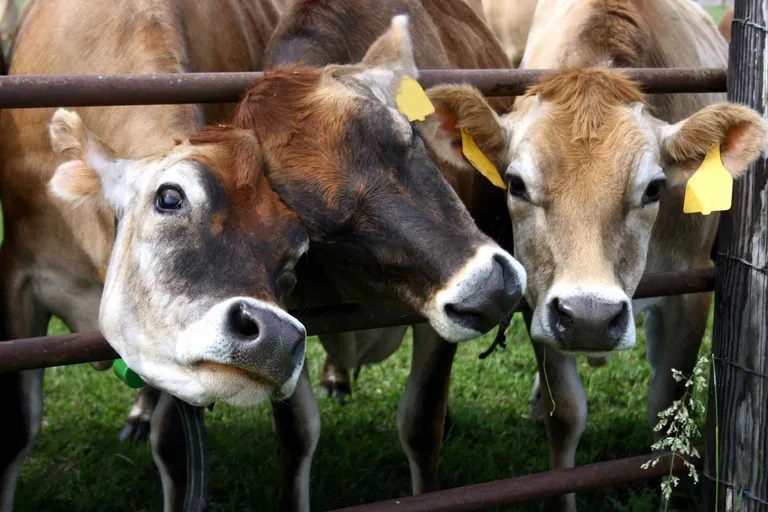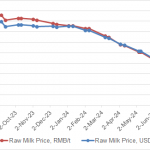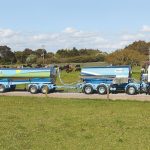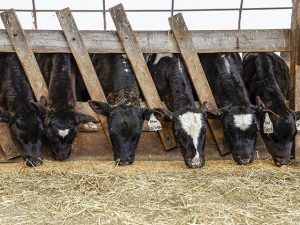
In March 2024, Familia del Norte’s mild-flavored panela cheese took the World Championship Cheese Contest’s gold medal. The contest is the world’s premier technical cheese, butter and yogurt competition since 1957, with skilled technical judges evaluating cheeses from 25 countries.
It’s a proud moment for a Ferndale artisan cheesemaker based in rural northwest Washington. Nidia Hernandez started Familia del Norte after noticing the artisan cheese community lacked notable, delicious cheeses from Latin America.
Hernandez grew up in Sunnyside, Washington, a small agricultural town with a large Hispanic community. Her husband, Daniel, comes from a dairy family. So Hernandez combined her cultural background with her husband’s artisan cheese-making skills to create Familia del Norte.
Familia del Norte cheese first sold at Eastern Washington farmers markets; the six kinds of cheese produced now sell out on PCC and Safeway shelves, too.
Washington’s artisan dairy products increasingly attract a wide variety of customers as they grow from humble market roots, merging traditional foods and all-natural ingredients with contemporary flavorings.
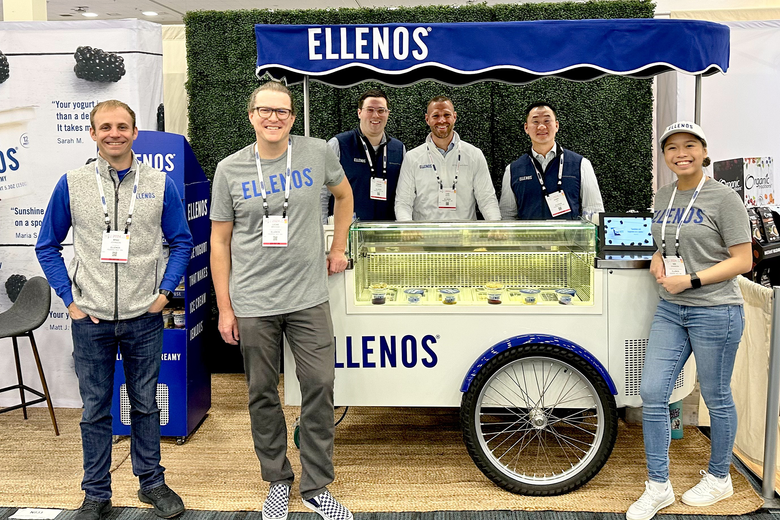
Greek yogurt with PNW roots
Ellenos Yogurt also started as a market favorite — at Pike Place Market, using a Greek-origin family recipe brought to the Seattle area by one of the company’s co-founders.
Today, the company’s nationally available yogurt and fruit puree blends are produced in Federal Way, just south of Seattle, in a smaller plant than many national brands.
Greek yogurt is a more concentrated, protein-rich yogurt with a thicker consistency and texture than American- or French-style yogurts, says Donny Lee, CEO of Ellenos.
Greek yogurt is currently the predominant yogurt style in the U.S. Ellenos uses whole milk to craft the yogurt’s full-fat base, unlike some competitors who use gelatins and gums in an attempt to replicate the creamy mouthfeel.
“The only thing on the package you likely can’t pronounce is the name of the cultures,” says Connor Andrade, vice president of marketing and product development growth at Ellenos. Those cultures are tongue twisters like S. thermophilus, L. acidophilus and L. rhamnosus — all Ellenos’ take on ancient, traditional probiotic contributors that help develop the yogurt’s signature creamy texture.
“When sourcing local ingredients, you’re creating a connection with a community emphasizing freshness,” Lee says. Ellenos elevates the traditional yogurt experience with Western Washington-sourced whole milk from Lynden, Washington’s Edaleen Dairy. The family farm provides grade A rBST-free milk that Ellenos combines with live active cultures.
Ellenos’ yogurt blends add Northwest-grown ingredients like apples, blueberries and marionberries, sweetened with simple cane sugar and honey.
“Sourcing high-quality ingredients locally whenever possible for our yogurt is something we take great pride in,” says Andrade. For example, apples in the brand’s Apple Crisp flavor hail from Eastern Washington’s Sunnyside community.
The purees are kettle-produced in-house, in small batches. Granola, muesli and other crumbly bits are sourced locally, too.
Lee says it appeals to a new generation of consumers who care about the ingredients and sourcing of their food products. “The flavoring is bold, with ingredients you feel comfortable with,” Lee says.
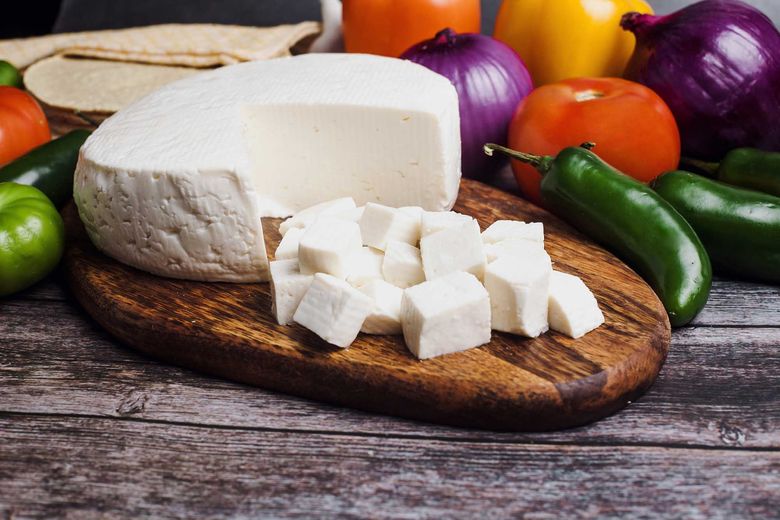
Making the most of local flavors
This commitment to local flavors is one of the keys to Familia del Norte’s approach, too. “The younger generation is more aware of ingredients, avoiding additives and preservatives, and want to know where their food comes from,” Hernandez says. Familia del Norte’s cheese is made from local Washington milk and doesn’t rely on additives or preservatives for flavor or stability.
The company often fields curious questions from farmers’ market shoppers and emails asking how the company makes their cheeses. Customers show interest in exploring new cheeses and uses, too, whether learning to add a handful of cotija to salads or melting panela in soups.
Latin America’s cheese-making history has a rich pedigree — communities taking Spanish and European cheeses and making them their own, such as Mexican manchego.
Manchego in Spain is made from sheep’s milk; Mexican communities craft it from cow’s milk. “Ours honors traditional artisan methods and ages the cheese from three to five months,” Hernandez says.
Some surprises happened along the way, too. “The process of cheese craftsmanship is a labor of love. I wasn’t expecting when I went into cheese-making that 80% of the process was sanitation,” Hernandez says. But high-quality, authentic cheese relies on intensive cleaning and processing.
For example, Oaxaca quesillo cheese is hand-stretched in clean, hot water to create its ropelike texture before being rolled into a ball and packaged — also all by hand. Crumbly, piquant cotija is hand-salted and mixed to evenly distribute the salt.
Modern technology can help speed up some elements and ensure a consistent product regarding taste, salt and moisture. “We try to be procedural with the parts we can control, and the parts we can’t control provide the artisan product,” Hernandez says.
Familia del Norte uses natural sea salts purchased from a Seattle-based company. The company purchases packaging from a Ferndale company.
The queso chipotle cheese isn’t traditionally sold in Latin America but relies on a traditional preservation method of rubbing the cheese’s exterior with chili.
“Cheese is so universal as a food ingredient and a gateway into more conversations about food,” Hernandez says.
Washington dairy comes from a special place. Home to soaring mountains, lush valleys and majestic evergreens — people love it here. Dairy farmers are no exception. Real people with a passion for wholesome milk, cheese and butter.
You can now read the most important #news on #eDairyNews #Whatsapp channels!!!
🇺🇸 eDairy News INGLÊS: https://whatsapp.com/channel/0029VaKsjzGDTkJyIN6hcP1K
